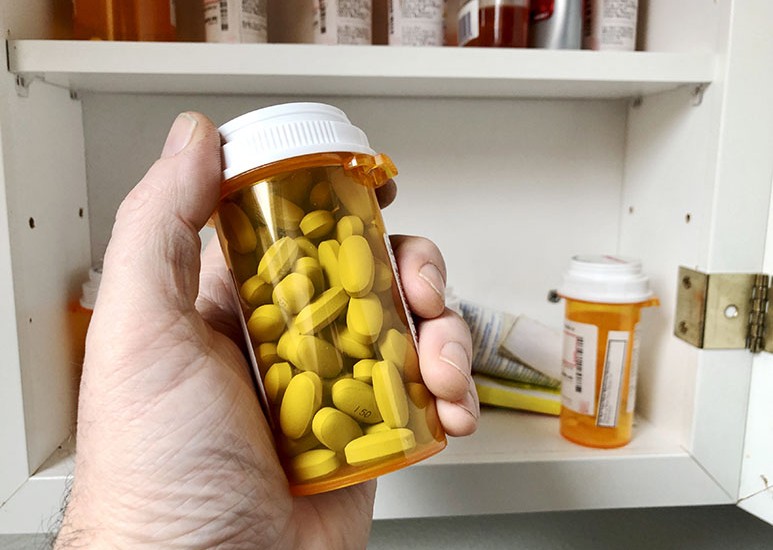Spring has finally sprung, which is a great invitation to clean an area that rarely gets attention: your medicine cabinet.
Old and rarely used medicines can pile up, which can pose a potential risk to you and your family. We’re here to help you with advice from Community pharmacist Cassie Richardson on how to get rid of unwanted medications.
Identify Unneeded Medications
The first step in cleaning out your medicine cabinet is simple — “If it’s past the expiration date, get rid of it,” says Richardson. Over-the-counter medications (OTC) don’t last forever, and even just a month past the expiration date can diminish their strength. That means they won’t be efficient at giving you the relief you need.
Also, dispose of any medications that you no longer need. Look for any prescription medicines from past surgeries, medications that you have since stopped taking, or partially full bottles of antibiotics from a previous illness. “It doesn’t matter if they aren’t expired. Dump them,” Richardson suggests. When you get sick in the future, you can rely on fresh medications that will help you back to health.
Dispose Properly
Disposing of medical waste requires more care than regular household garbage. Rather than letting those medicines go to a landfill or potentially end up in the wrong hands, you can find dedicated medical waste disposal sites and events that will safely receive those products.
April 27, 2024 is National Drug Take Back Day, and Community will be hosting a medication drop-off event at various locations. No I.D. or signatures are required to drop off over-the-counter, prescription or other medications, and personal information can be crossed out to protect privacy. All medical waste will be safely processed according to Indiana state law. Here's where you can take your unwanted medications.
- Community Hospital Anderson: 10 a.m. to 2 p.m. | 1515 N Madison Ave, Anderson, IN | Emergency Entrance Lobby
- Community Hospital South: 10 a.m. to 2 p.m. | 1402 E County Line Road, Indianapolis, IN | Main Entrance
- Community Hospital North: 10 a.m. to 2 p.m. | 7979 N Shadeland Ave, Indianapolis, IN | Cancer Center Main Entrance
- Community Hospital East: 10 a.m. to 2 p.m. | 1500 N Ritter Ave, Indianapolis, IN | Professional Office Building Entrance
- Community Howard Regional Health: 10 a.m. to 2 p.m. | Community Surgery Center Drive Entrance
Organize What’s Left
Once you dispose of expired and unused medications, it will be easy to reorganize the remaining ones. Start by grouping your OTC meds by purpose. Collect the ones used for sinus infections and allergies and place them apart. Likewise, separate children’s and adults’ medications.
Next, check each OTC medication label for similar ingredients that may cause an accidental overdose. “When you’re treating a cold or sinus infection,” explains Richardson, “make sure you don’t load up on overall relief medicine containing acetaminophen, then take Tylenol as well.”
If you’re taking any OTC medications or supplements, including vitamins, they may interact with your prescriptions and reduce their effectiveness. Always talk to your doctor to learn about prescription interactions.
